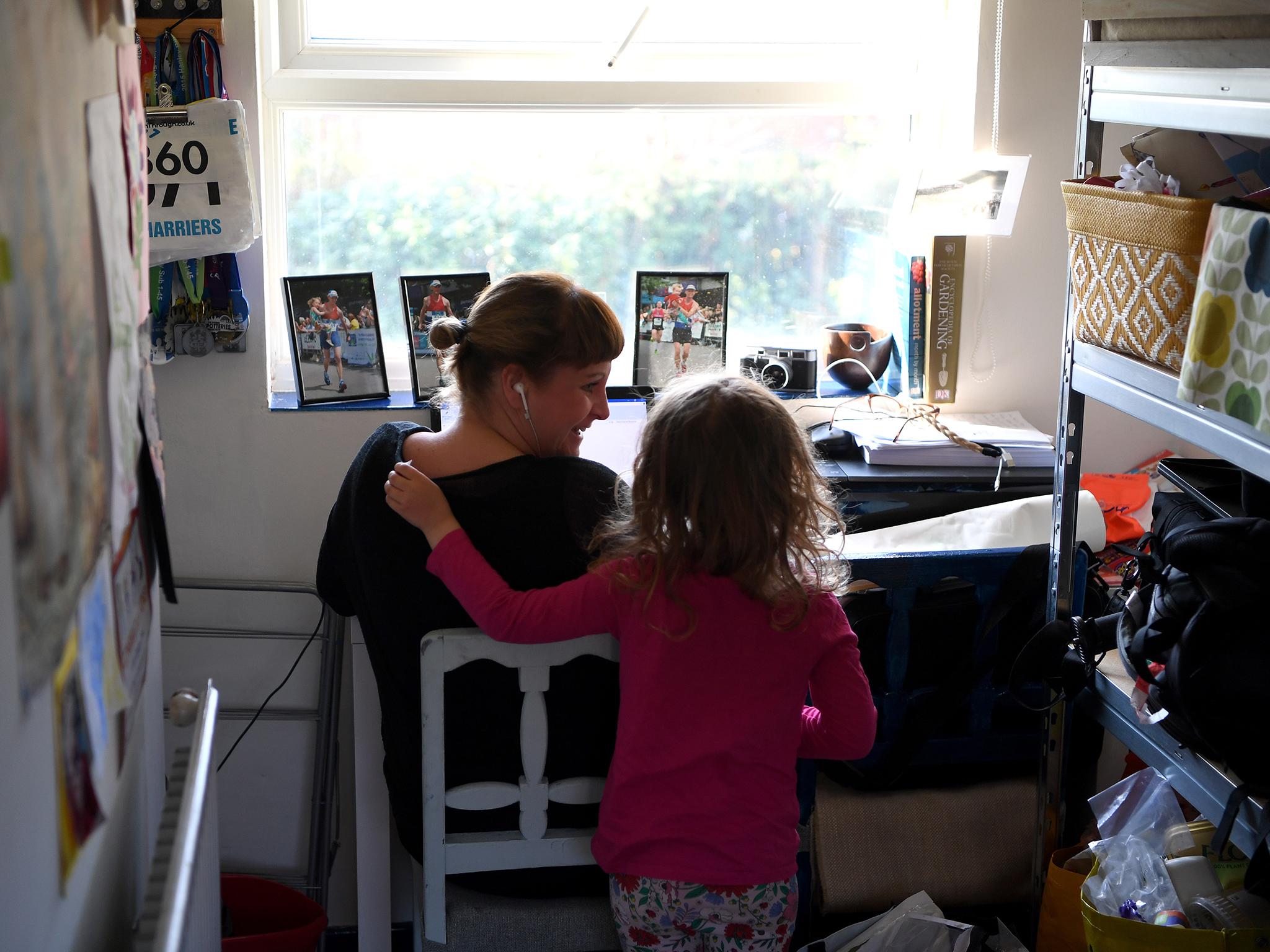Coronavirus: Majority of working mothers say intensified childcare during lockdown has damaged career prospects
‘This has resulted in women being pushed into unpaid leave, sick pay or furloughed as a direct result of having children,’ says campaigner

The majority of working mothers say the intensified childcare burden caused by the coronavirus lockdown has harmed their career prospects, a new study has found.
A poll of 3,686 pregnant women and mothers found some 57 per cent of working mothers believe chaos caused by the closure of schools and childcare providers during lockdown has already damaged their careers or will cause future harm.
The study, carried out by campaign group Pregnant Then Screwed, found almost half of working mothers feel forced to send their children back to school or a childcare provider to ensure they do not get laid off.
Some 78 per cent of working mothers have found it challenging to juggle childcare and work during the coronavirus crisis — with a quarter of them saying their workplace has not provided flexibility to help them manage this extra pressure.
The poll comes after a recent report by London School of Economics found women are more likely to deal with homeschooling, childcare and chores around the house, even if they are balancing this with work.
Joeli Brearley, founder of Pregnant Then Screwed, said: “What is terrifying is the volume of mothers that we have spoken to who after just 12 weeks already feel that this will negatively impact their career.
“It’s utterly disgraceful that employers haven’t recognised that working from home with children has been a case of absolute survival. Women are more likely than men to lose their jobs in the impending recession and yet for a quarter of working mothers their employer has refused to give them the flexibility they need. This has resulted in women being pushed into unpaid leave, sick pay or furloughed as a direct result of having children. It’s no wonder working mothers aren’t thinking positively about their future careers.”
The study found almost one in 10 pregnant women are preparing to be made redundant — with 20 per cent of these women deeming their pregnancy to be behind their workplace’s decision.
Some eight per cent of pregnant women have been suspended from work on “incorrect terms including sick pay, no pay, enforced annual leave or put on maternity leave early”.
Researchers found a substantial number of pregnant women had still been going to work during the pandemic, despite the chief medical officer previously saying all women expecting babies are in a vulnerable group. Some five per cent were going to work in conditions that are not safe for them despite their pregnancy, with this number increasing to six per cent for black and minority ethnic (Bame) pregnant women.
While 15 per cent of pregnant women working in the NHS said they were being made to have face-to-face contact with patients who could have coronavirus.
Ms Brearley added: “If you are being treated differently in the workplace than other women or men because you are pregnant this is discrimination and it is illegal. If your work has not completed a health and safety risk assessment to prove that you are safe at work, and will not come within two metres of other people, this is illegal. Pregnant women are in the vulnerable category, they must be protected, not penalised, and not put in harm’s way.”
Rosalind Bragg, director of pregnancy charity Maternity Action, has said their advice lines have been “swamped by calls from distressed pregnant women” having problems in the workplace.
Experts recently told The Independent parents may struggle to find childcare as the Covid-19 emergency pushes them out of business. Roughly two-thirds of early-years providers decided to close their doors during the lockdown — with many nurseries and childminders blaming money trouble, and most services that stayed open losing income due to a sharp drop in demand.
Join our commenting forum
Join thought-provoking conversations, follow other Independent readers and see their replies
Comments
Bookmark popover
Removed from bookmarks